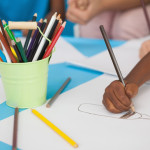Students don’t like to read. These rarely discussed reasons may explain why. Kindergarten is no longer a garden. Kindergartners are pressured to read. Before NCLB, over twenty years ago, this was unheard of and still makes no sense. Formal reading instruction once began in first grade. Children in the not-too-distant past were given time to […]
The Harm Caused By the Third Grade Reading Ultimatum
Tremendous pressure is placed on children to learn to read by third grade. They must pass state reading tests created by those expecting them to read at this time. If they don’t do well, they could fail third grade. Yet there’s no clear research on the age a child should be able to read. Not […]
The PBS NewsHour/Education Week Report About Dyslexia: Biased & Short on Facts
Schools must provide adequate reading programs and reading remediation for students who need more assistance. But the recent report on dyslexia recommending intensive phonics for all children by the PBS News Hour, through Education Week, is irresponsible, short on facts, and presents biased reporting. Education Week receives grants from philanthropic groups that favor school privatization. Here are […]
Technology or Books? The Right Book for Christmas and the Holidays
When I was a child, my aunt and uncle, who lived in Chicago, would always send me a cool present for Christmas. I would eagerly run home from school looking for that package attached to the mailbox. It would be wrapped in brown paper and string. The packaging paper would be removed on Christmas Eve, […]
How Did We Learn to Read? Is There a Teacher to Thank?
The debate surrounding how to teach children to read is ongoing. What we tend to forget and ignore is how we learned to read ourselves. I think it’s important to address what helped make us the readers we are today, or what problems we encountered. Perhaps we can recall what worked, and what didn’t, by […]
Teach Cursive Writing! Why It’s Important for Children Including Those with Dyslexia
Cursive writing is important for many reasons, and its loss in America’s classrooms should raise concerns. Cursive not only differs from print in the way it looks, it connects letters to words in a meaningful and productive way. It has been shown to assist children with reading difficulties like dyslexia. All students benefit by learning […]
What Happens to Artists Who Aren’t Good Readers?
Imagine children in public schools today, who do not read well, but who are undiscovered, gifted artists. They are continually drilled in reading and get few opportunities to express themselves artistically. In some schools, if a student does not test well in reading they do not get to be in the band, or they are […]






